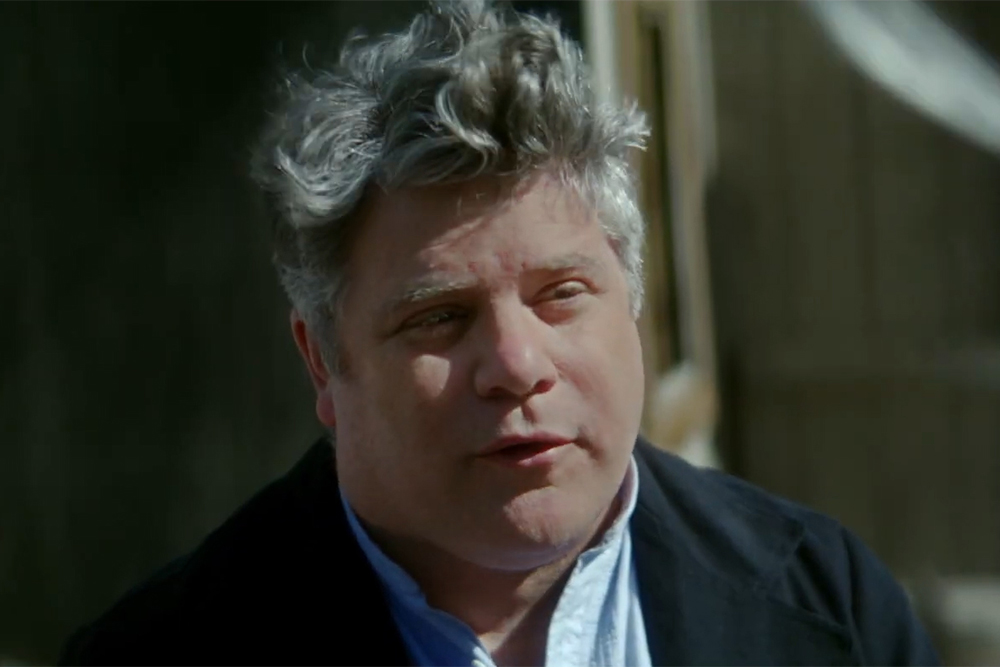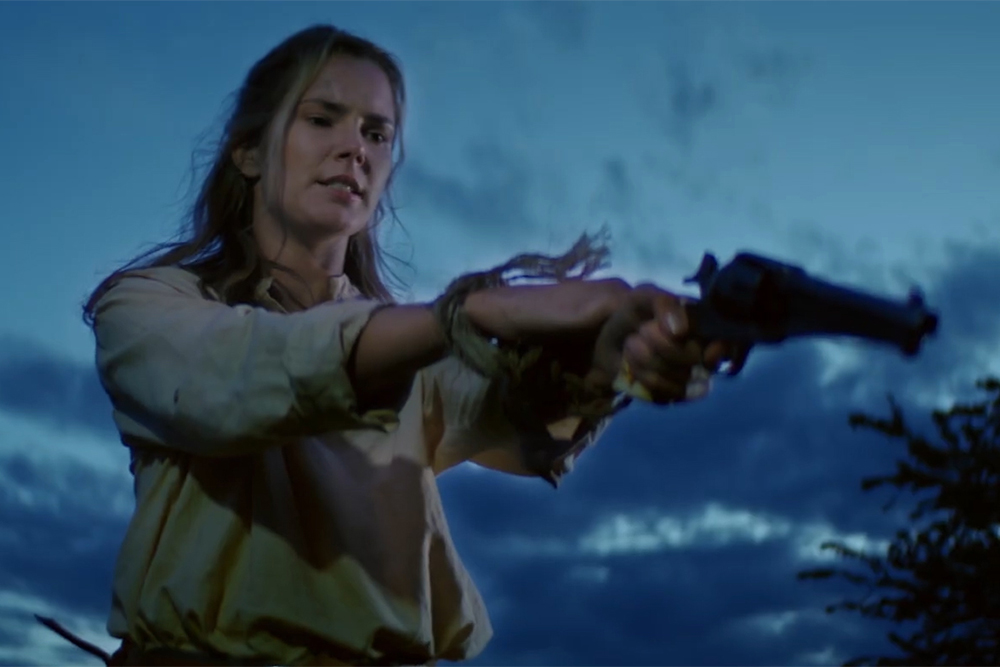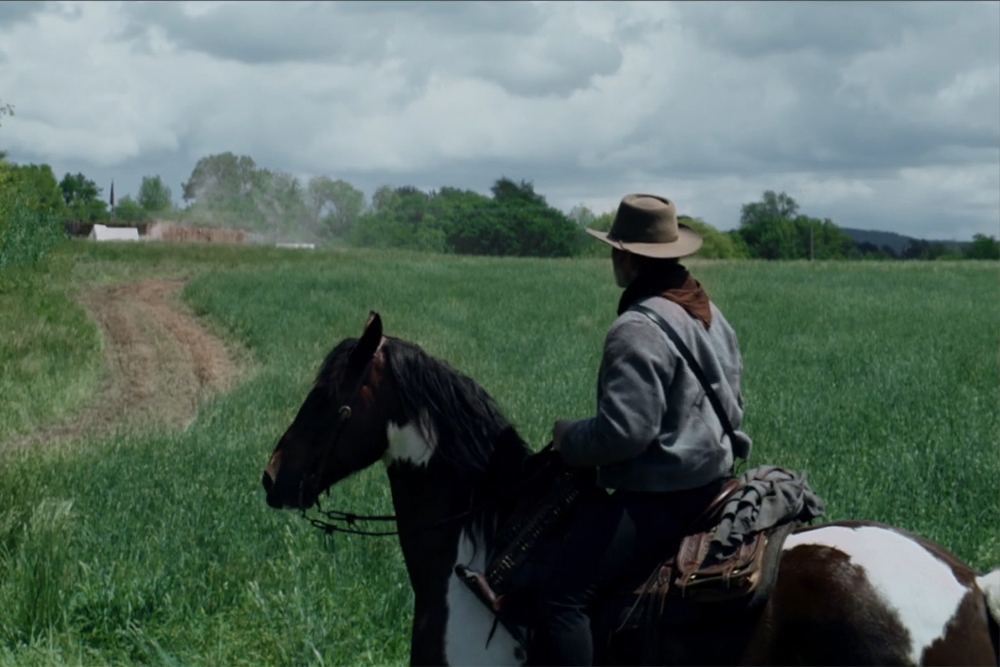Interview - The Wild West Reimagined: Director Brian Skiba on Guns of Redemption
By Mulder, Los Angeles, 24 february 2025

Brian Skiba, known for his work on The Gunslinger and Cold Deck, returns to the Western genre with Guns of Redemption, a gripping tale of vengeance and survival set against the rugged backdrop of the American frontier. Starring Casper Van Dien as a war-hardened gunslinger on a desperate mission, the film blends classic Western elements with modern cinematic intensity. With a formidable cast including Jeff Fahey, Sean Astin, and rising talents like Kaitlyn Kemp and Siena Bjornerud, Guns of Redemption promises high-stakes action, emotional depth, and stunning cinematography by Elliott Montello. Ahead of its March 7, 2025, release, we had the opportunity to speak with Brian Skiba about his vision for the film, his approach to revitalizing the Western genre, and what audiences can expect from this thrilling ride into the lawless frontier.
Q: What inspired you to make Guns of Redemption, and how did the project come to life ?
Brian Skiba: I was asked by Jamie Thompson, one of the writers, to read the script because he was putting it together with Shout Studios. So, I read the script and was like, "Man, this is cool." You know, it's your classic Western—bad guy going to do something good kind of story. And so, it kind of drew me in because I wanted to do it. Fortunately, I was already working on another Western, so we kind of piggybacked them together, which allowed us to make a great film. I really enjoyed the story, and I also really enjoyed the cast. They were talking about having Casper as the lead, and that kind of thing really drew me in.

Q: The film features actors like Casper Van Dien, Jeff Fahey, and Sean Astin. How did these casting decisions shape the film, and what unique qualities did they bring to their roles ?
Brian Skiba: You know, I mean—so Jeff Goldberg is the manager of Casper and Jeff Fahey, and Goldberg's a longtime friend of mine. We were just like, "Jeff, give us your best actors," so he did. He gave us Sienna as well, so we had three great actors from him.
And then Sean—you know, we were going through names with Shout Studios, thinking about who our third star could be. We went through some typical Western names, and then Sean's name came up, and everybody was like, "Yeah, man, Sean would be phenomenal in this part." And sure enough, he was. I mean, he's just one of the kindest people on the planet. Sean is such a good person.
So, we ended up with a phenomenal cast. Jeff is just a constant pro, and Casper and I go way back. You know, Casper just brings it.

Q: Guns of Redemption explores redemption, revenge, and facing one’s past. How did you approach these themes through the character of Luke ?
Brian Skiba: You know, I mean, Luke's story is complicated, right? I mean, it's one of those stories where he's a bad guy—he belongs to the wrong team. He's a Confederate, you know, a colonel in the Confederate Army—a bad guy, very clearly. But at one point, in the beginning of the movie, you see that he has this kind of moment of awakening, where things start to change for him. He realizes, Man, maybe I'm playing for the wrong team.
So, he starts searching for forgiveness and redemption in his life, and he begins helping Sha rebuild that church. I feel like that's something anyone who's lived on this earth can relate to. We've all made mistakes—some bigger, some smaller—but we're always asking for forgiveness and looking for a little redemption. So, I think Luke’s journey, as played by Casper, is something people can really understand.
Q: What were some of the biggest challenges you faced while shooting this film, especially when it came to action sequences and period accuracy ?
Brian Skiba: You know, some of the biggest things we dealt with were the weather. We were shooting in the spring, so it was tornado season. We had tornadoes come near us, we had lightning and thunder, and we would have to stop shooting and seek shelter. We were even shut down one day because of a state emergency. Those kinds of things become very difficult when you're shooting a film on a tight schedule and a tight budget. That’s what makes it challenging—you constantly have to adapt. You have to be flexible; sometimes, you have to shoot a scene quicker than you had hoped for.
As far as period accuracy goes, it wasn’t that hard to find period-appropriate props and locations in Kentucky because it’s all there—the Civil War took place there. The battlefield where we actually shot was an old battlefield—it was where the Battle of Munfordville took place. So that wasn’t nearly as difficult as dealing with the weather.
For historical accuracy, we had a lot of historians come out to the set and help us. Some of them specialized in the Civil War era, and they provided valuable input. That’s how we overcame those challenges.

Q: With Elliott Montello as the cinematographer, how did you work together to capture the essence of the Western genre visually ?
Brian Skiba: Elliott is a phenomenal artist—he can really draw and paint, and that’s something I wish I could do. I express myself through images in my movies; I paint with film. But Elliott can actually paint. He’s traditionally an art director with experience as a DP, and he recently directed his first feature.
Elliott and I are really good friends, so it was great to work with someone who truly cared about the art of filmmaking. He focused on capturing beautiful shots and making each frame as visually stunning and epic as possible, despite the limitations we were working with.
Q: You’ve worked with Casper Van Dien before. How did your past collaborations influence your dynamic on this film ?
Brian Skiba: You know, Casper and I are good friends—we go back quite a ways now. It was cool because we have a bit of a shorthand. I know how Casper works, and he knows how I work, so we didn’t have to worry about those things.
I think that helped a lot because when you’re working with a new actor, you’re both feeling each other out—figuring out how each of you works, whether you’ll get along, and so on. But with Casper, that part was already done. We’re great friends, so we didn’t need that adjustment period.
It really just came down to honesty. I told him, Hey man, I want Luke to be as genuine and down-to-earth as possible. Put as much emotion behind this character as you can—he’s a broken man. And Casper did that. He really brought it to the table, and it was refreshing.

Q: Westerns have evolved over the years, with modern films often taking a grittier or revisionist approach. How does Guns of Redemption fit into this new wave of Western films ?
Brian Skiba: You know, I feel like there is a resurgence of Westerns right now—you know, the Sheridan universe, the Yellowstone universe, whatever they call it. So, I feel like Guns of Redemption fits into that in a way by telling the story of the aftermath of the Civil War, which we don’t see a lot of.
We usually see stories about the Civil War itself or ones that take place 15 years after, which is traditionally the era of the Old West—the dusty frontier setting. But this one takes place just a year after the Civil War, which was an incredibly difficult time in American history and culture. I think people were confused about what side they were on. There were a lot of bad guys who were good and good guys who were bad. It was a very controversial and chaotic time.
So, I feel like portraying that period adds a great mix to the current wave of Westerns, which are also digging into history in a way that reflects the lawlessness of the era. There was a time when you could legitimately do some bad things and potentially get away with it—and it was horrific.

Q: How did you approach the film’s score and soundtrack to enhance the emotional and action-driven moments ?
Brian Skiba: I actually scored the movie myself. Going into it, I had some ideas of what I wanted, so I did some research online. I found some classic elements—you know, fortunately, these days, there’s just so much music, loops, and sound effects that you can purchase.
So, before starting the film, I did a lot of research and found specific loops that fit the spaghetti Western genre—the whistle, certain sound effects. It’s great because, 20 years ago, you would have had to create those sound effects yourself, whereas now, you can just do some research, pay $20, and buy them.
I searched for all these great sound effects that I loved as a kid watching Sergio Leone films. Then, I took those sounds and mixed them into actual music, creating the score and the sound design. So, we’ve got the classic Western whistle, the rattler—I even used real rattlesnake sounds. For Bork, that’s a rattlesnake sound that I modified a bit to give it a distinct theme.
I was listening to these elements while filming, and then, once I got into the studio and started recording, it became clear that I was creating something like Peter and the Wolf, where I wanted the music to have distinct themes—specific themes for each character.

Q: The script was written by Kieth Merrill, an Academy Award-winning writer. What was it like working with him, and how did his writing shape the film’s storytelling ?
Brian Skiba: Working with Keith was great. I mean, I didn’t have a lot of direct interaction with him. I was given the script by Jamie Thompson, who worked directly with Keith.
When I received the script, it was originally set in the Southwest as a dusty Western, so we had to rewrite it for Kentucky. I did a little work on it—I did my director’s pass to adapt it for Kentucky.
Initially, the story only featured Caitlyn’s character alone, but Jamie and I talked about it and thought, Man, it’d be much more interesting if it were sisters running together. So, we added the sisters into the movie.
But overall, I wasn’t really heavy-handed with Keith’s script. Keith is a phenomenal writer—he told a great story. When he read what I had done, he thought it was great, gave it his stamp of approval, and told us to go for it.

Q: What do you hope audiences will take away from Guns of Redemption? Do you see it as purely entertainment, or do you hope it delivers a deeper emotional impact ?
Brian Skiba: You know, I mean, it’s all entertainment on some level. But I do hope that people walk away with a little bit of a deeper impact—understanding that redemption is possible.
You may have done something bad in your life—hopefully not as bad as what Luke has done—but we’ve all made mistakes. And you can seek forgiveness, you can seek repentance, and, eventually, you can start over again.
Synopsis :
A stranger only known as Luke (Casper Van Dien) leaves his violent past behind, but when old enemies shoot him down, he straps on his guns one last time to save two sisters held by his enemies before he bleeds to death or dies from the bullet lodged in his spine.
Guns of Redemption
Directed by Brian Skiba
Produced by Sean-Michael Argo, Kirsten Grace Hoge, Jon Keeyes, Mandi Murro, Jamie R. Thompson
Written by Kieth Merrill
Starring Casper Van Dien, Kaitlyn Kemp, Siena Bjornerud, James Logan, Liz Atwater, Celeste Blandon, Curtis Lyons, Jesse Gallegos, Sean-Michael Argo, Kim DeLonghi, Michael Arata, Myrom Kingery, Chris McNett, Sean Astin, Jeff Fahey, Forrest Wilder, Francis Cronin, Jordan Scott, Emma Murray, Emily Bratcher
Cinematography : Elliott Montello
Edited by Brian Skiba
Production companies : Lighthouse Pictures, Skibavision
Distributed by Lighthouse Pictures (United States)
Release date : March 7 ,2025 (United States)
Running time : 95 minutes
Photo credit: Shout! Studios

